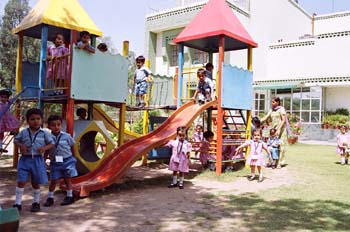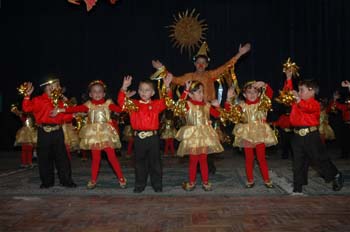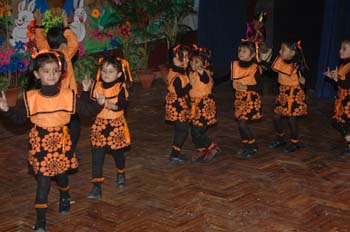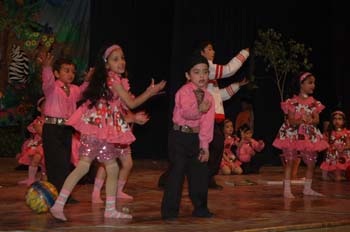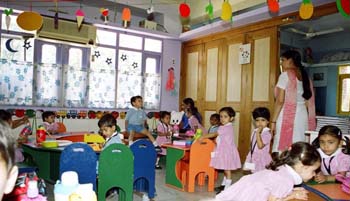Froeble Friedrich in 1837 in Germany introduced this concept of Kindergarten meaning Children’s garden. Children spend several hours each day with a teacher who helps them to learn through playing and other activities Madam Montessori, a doctor from Italy, was the first female to take up Kindergarten as a profession. She came to India in 1939 and till 1951 she propagated this system here.
The first level where children are introduced to school is Nursery. Teachers involve them in art, music, song, stories, games & group activities. Children develop habits of co- operation & application. Their transition from home to school is thought to be made less formidable. Children who previously have spent most of their time home, kindergarten may serve the purpose of training them to be apart from their parents without anxiety. They are introduced to the idea of friendship while they interact and play with other children each day.
When they are finally settled and learnt the few steps of being disciplined & scheduled, they are promoted to L.K.G, where their play times are reduced. They are made aware of alphabets & numbers. Their phonetic sounds and counting with keeping intact some time for outdoor games, rhymes, music, coloring etc. Along with these they are informed about surroundings through stories and drawings. Little of memorizing and go about holding the pencil and writing is done in this step.
The third step where they actually learn joining alphabets, making words and then sentences is U.K.G. The number counting increased to more digits. They speak small sentences and express themselves better. Their General knowledge and awareness is enhanced further.
Tiny tots move away from home
They hop, skip, run, jump and roam
While playing with colors their imagination go wide
With all the freedom they read & write
With toys and games they have fun & friends
There’s time to eat and time for prayer
With each day they are trained with tender care
Here they learn to express and share
|
|
||
|
|
|
|
|
|
|
|
